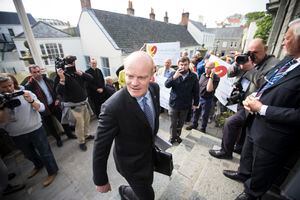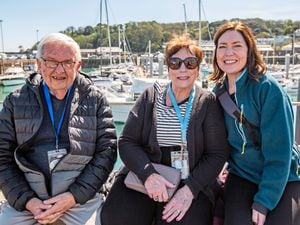Assisted dying concerns dealt with one by one
A SPEECH which Gavin St Pier said was probably the longest he had ever given dealt one by one with 31 objections to the concept of assisted dying.

Opening the debate on the controversial issue, Deputy St Pier referred members to issues of self-determination that had been changed over the years – citing divorce, the de-criminalisation of homosexuality and allowing women to take control of their reproduction with contraception and abortion, leading up to allowing same sex marriages.
‘Each change has been resisted, each change has been accompanied by arguments of a slippery slope,’ he said.
He described the practise of prescribing something that hastened the end of life as ‘the balm for our collective conscience and the legal fig leaf that we are not assisting death, we are simply managing it’.
Deputy St Pier was also behind the first – and, it turned out, only – amendment to be laid, a last-minute set of replacement proposals seconded by Heidi Soulsby.
It incorporated other amendments that had been placed to the requete by Deputy St Pier himself, Deputy Soulsby, Jonathan Le Tocq, Deputy Barry Brehaut and Deputy Sarah Hansmann Rouxel.
Of the other amendment proposers, only Deputy Le Tocq said that he wanted to place his separately.
In light of this, he was given special dispensation by Bailiff Sir Richard Collas to speak twice, so he could reply to points raised in relation to the proposal that reflected his area of concern, which did not include assisted dying but focused on end of life care.
The amendment was passed by 21 votes to 17.
As debate got under way, Deputy Jane Stephens said that while a lot had been said for and against both assisted dying and palliative care, her strategy was to seek a way forward with the known and the familiar, which in this case was palliative care.
‘We should not and must not develop a Guernsey way of death,’ she said.
Deputy Peter Roffey slated the comments made by some opponents of assisted dying, saying that some ‘irresponsible rubbish’ about the island’s situation had been stated by Baroness Finlay on the BBC Radio 4 Today programme.
He referred to places where assisted death had been brought in, where palliative care had actually improved rather than declined, as some opposed to assisted dying had suggested would happen.
n Debate continues today.





